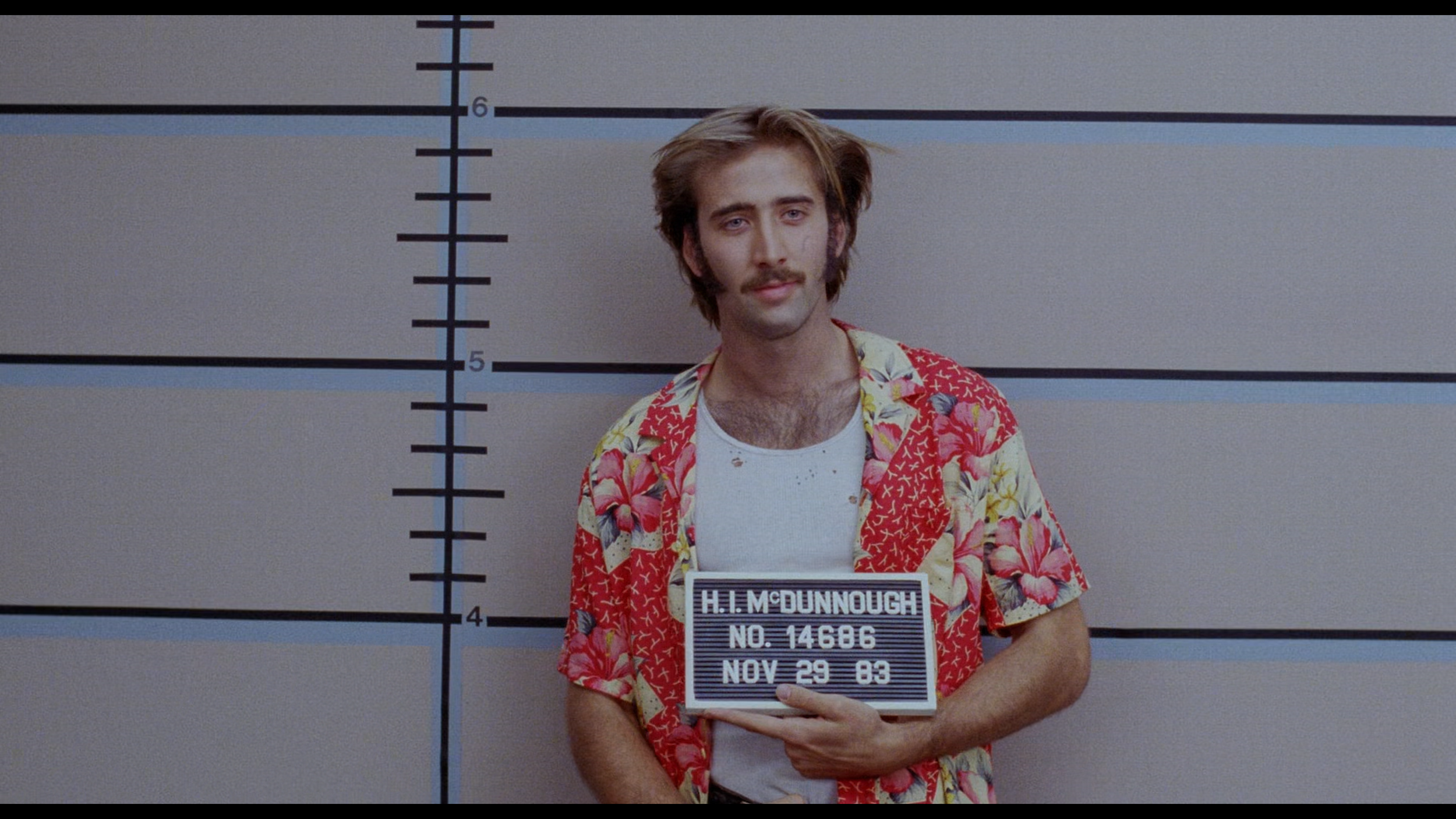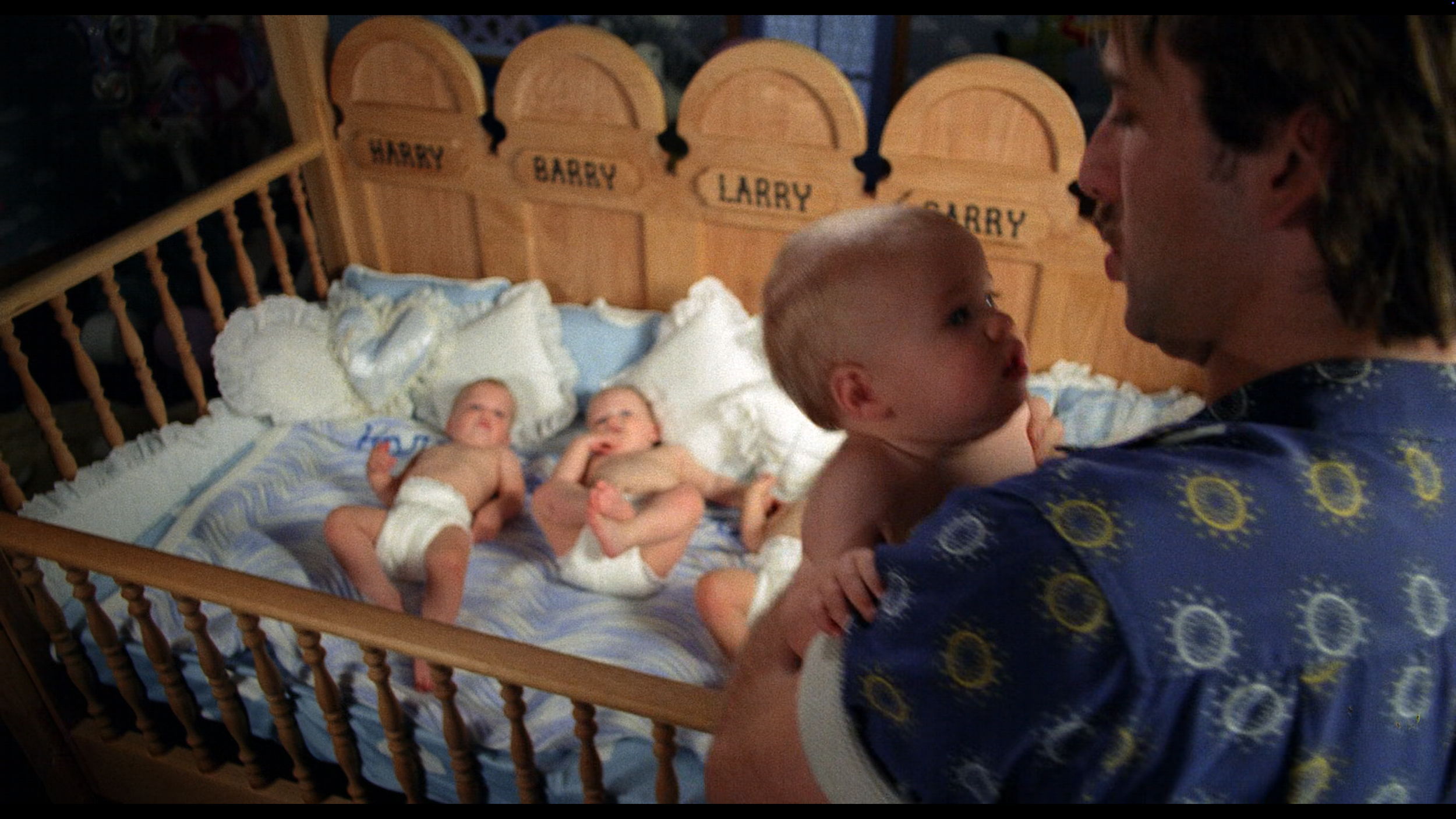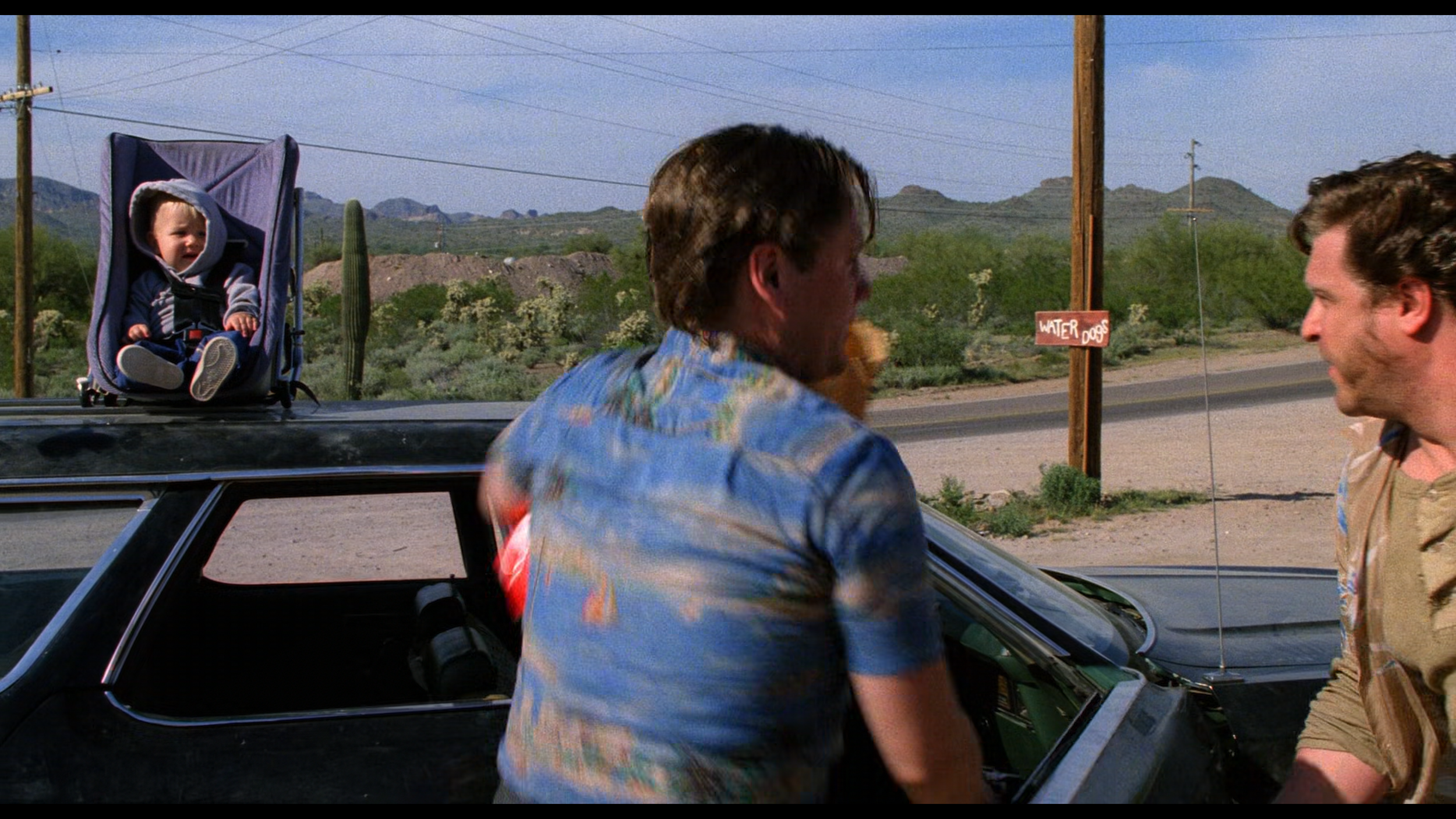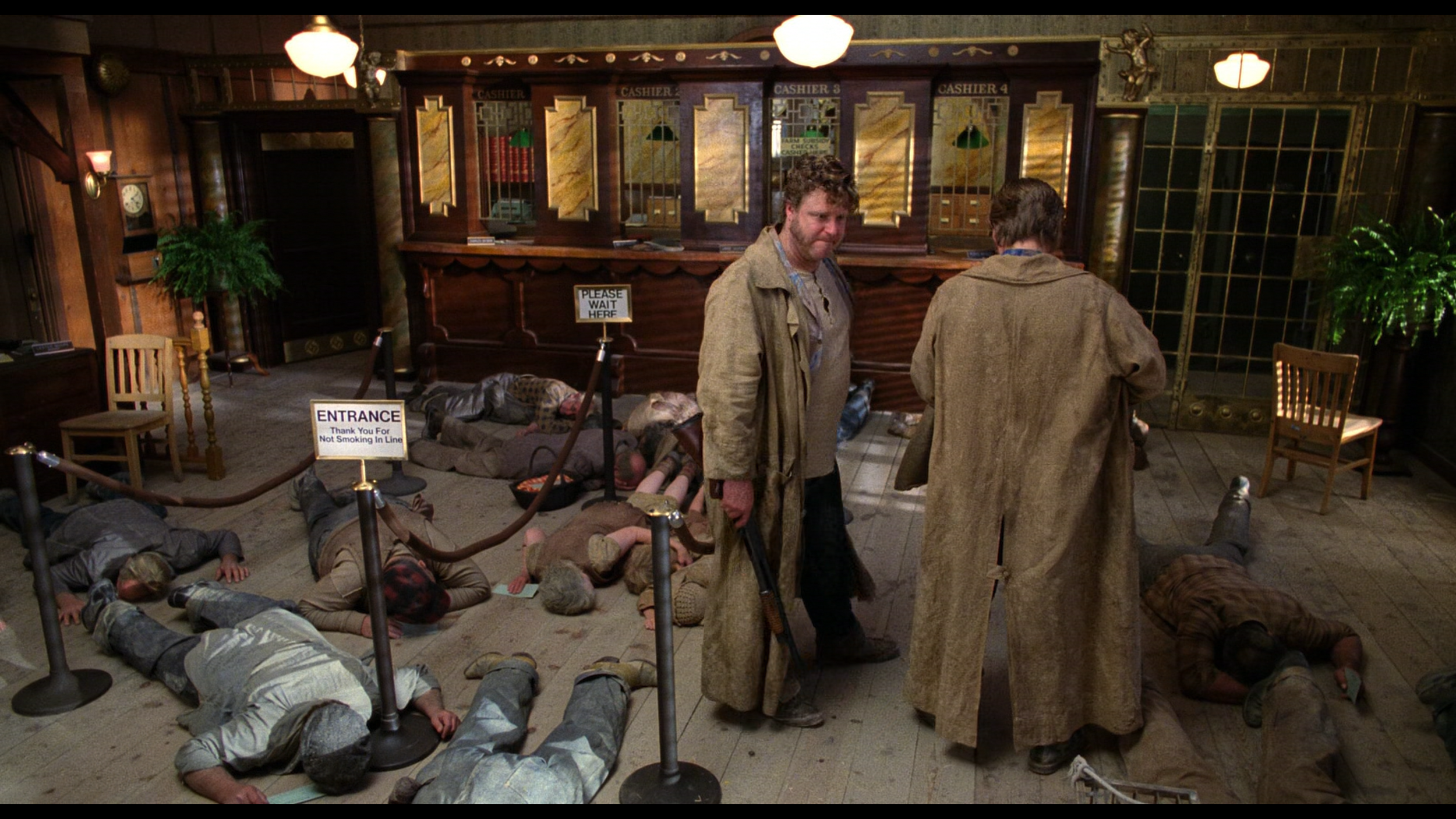Raising Arizona (1987)
"I don't know. Maybe it was Utah." Or maybe it was the 1980s, a time of chaos, absurdity, and longing, perfectly encapsulated in Hi McDunnough's opening monologue: "I tried to stand up and fly straight, but it wasn’t easy with that sumbitch Reagan in the White House." This single line sets the tone for the Coen Brothers’ “Raising Arizona,” a film that blends heartfelt humanity with screwball comedy in a way that feels both timeless and profoundly of its era.
Let’s talk about the style. The Coen Brothers and Barry Sonnenfeld create a visual language that perfectly mirrors the story’s manic energy. The vast, barren Arizona landscapes isolate the characters, while the gaudy, pastel interiors, like the Arizonas’ absurdly lavish home, embody 1980s excess. Every location feels just slightly off, creating a world where nothing quite fits—much like Hi and Ed’s attempts to build the perfect family in a system stacked against them.
Sonnenfeld’s cinematography deserves some attention. The symmetrical compositions and painterly framing feel like precursors to Wes Anderson’s style, while dynamic whip pans and crash zooms propel the action forward and wide angle lenses create a sense of distortion that would become a trademark of the Coens. The camera itself seems as restless as the characters. This combination of aesthetic precision with chaotic motion gives the film a rhythm that is both unpredictable and mesmerizing, making even the most absurd sequences feel artful and deliberate.
The famous diaper chase scene is a masterpiece of coordinated chaos. The camera careens through backyards, grocery aisles, and suburban streets, perfectly timed to Hi’s increasingly desperate escape. The action feels frenzied, but every element, dogs, shoppers, police, is meticulously placed. This balance between chaos and control is pure Coen Brothers and encapsulates the film’s unique comedic and visual identity.
At the center of it all is Nicolas Cage, delivering one of the boldest and most important performances of his career. As Hi McDunnough, Cage is equal parts manic, tender, and hilarious. He walks a perfect tightrope between ridiculous and sincere, making Hi a lovable, bumbling antihero. Cage’s physical comedy, from the way he moves, to his expressions, paired with his ability to convey genuine vulnerability ensures that Hi is unforgettable, standing as one of Cage’s most iconic roles.
Holly Hunter is equally brilliant as Ed, whose determination to create a family blinds her to the ridiculousness of her decisions. Her intensity and conviction ground the film’s outlandish premise. Meanwhile, John Goodman’s Gale Snoats is a force of nature. Goodman commands attention with his booming voice and over the top physicality. Gale’s mix of menace and absurdity makes him both a hilarious foil and a reflection of the chaotic forces Hi and Ed are up against.
The Coens’ unique tone also comes through in their subtle satire. “Raising Arizona” feels like a critique of Reagan-era values, from the commodification of family to the widening gap between the rich and the working class. Hi and Ed’s desire for a traditional family life contrasts sharply with the Arizonas, whose grotesque wealth and excess highlight the absurdity of the ideal they’re chasing. The film pokes fun at the American Dream while reveling in its characters’ humanity.
Beyond the satire, however, the film is full of heart. Beneath the slapstick and chaos lies a story about people trying to carve out happiness in a world that seems designed to thwart them. Hi and Ed’s love for each other, flawed and desperate as it may be, feels real. The Coens never mock their characters; they treat them with a kind of affectionate absurdity, allowing us to laugh at their antics while rooting for them to somehow succeed.
Upon its release, Raising Arizona received mixed reviews, including a lukewarm critique from Roger Ebert, who found the film’s exaggerated tone off putting. While I rarely disagree with Ebert, this is a case where we diverge. The Coens’ embrace of hyperbole is not a flaw but a strength, amplifying the absurdity to reveal deeper truths about human nature and societal expectations.
Over time, Raising Arizona has been rightfully recognized as a comedy masterpiece and one of the defining films of the 1980s.










